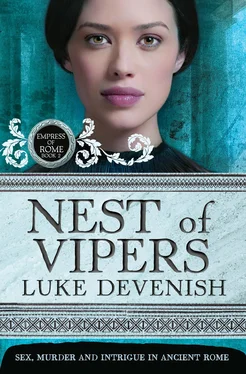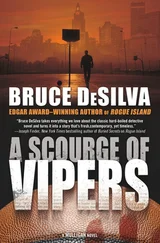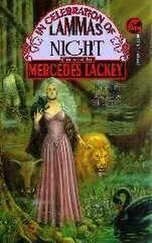Luke Devenish - Nest of vipers
Здесь есть возможность читать онлайн «Luke Devenish - Nest of vipers» весь текст электронной книги совершенно бесплатно (целиком полную версию без сокращений). В некоторых случаях можно слушать аудио, скачать через торрент в формате fb2 и присутствует краткое содержание. Жанр: Исторические приключения, на английском языке. Описание произведения, (предисловие) а так же отзывы посетителей доступны на портале библиотеки ЛибКат.
- Название:Nest of vipers
- Автор:
- Жанр:
- Год:неизвестен
- ISBN:нет данных
- Рейтинг книги:5 / 5. Голосов: 1
-
Избранное:Добавить в избранное
- Отзывы:
-
Ваша оценка:
- 100
- 1
- 2
- 3
- 4
- 5
Nest of vipers: краткое содержание, описание и аннотация
Предлагаем к чтению аннотацию, описание, краткое содержание или предисловие (зависит от того, что написал сам автор книги «Nest of vipers»). Если вы не нашли необходимую информацию о книге — напишите в комментариях, мы постараемся отыскать её.
Nest of vipers — читать онлайн бесплатно полную книгу (весь текст) целиком
Ниже представлен текст книги, разбитый по страницам. Система сохранения места последней прочитанной страницы, позволяет с удобством читать онлайн бесплатно книгу «Nest of vipers», без необходимости каждый раз заново искать на чём Вы остановились. Поставьте закладку, и сможете в любой момент перейти на страницу, на которой закончили чтение.
Интервал:
Закладка:
Lygdus began to sob. 'It's so unfair,' he said. 'The dancing was beautiful, and the music too. Why deny us this? What point does it serve?'
He'd certainly changed his tune. 'It's obvious,' I replied as we filed past. 'Tiberius is threatened by their popularity.'
'But he lets the gladiators fight, and they're even bigger celebrities.'
'How many are still alive after the Ludi?' I asked. 'They're no threat when they're dead — but great actors live on for years.'
'He fears anyone who might be more loved than he is,' said Lygdus in disgust, seeing the truth now.
I nodded, but my eyes were on the men of the chorus.
'If that's his problem, then good luck, Rome,' said Lygdus. 'Who isn't more loved? He'll be banning every one of us.'
'It may come to that,' I said. The lone chorus man who had retained his mask was now loosening it from his face.
'Well, it's terrible,' said Lygdus. 'Rome is becoming a joyless place.'
'Perhaps there is still a little joy left,' I said.
'No, there's nothing,' said Lygdus, wiping tears from his eyes.
The chorus man let the mask hang from his fingers as his eyes met mine in the line of slaves.
'No really,' I insisted. 'I think you might find that joy is still ours — yours and mine, Lygdus — though we'd be wise to keep quiet about it.'
'What are you talking about?' he said.
I pointed to the man who had removed his mask. Under his stage robes was the ill-concealed mound of a hump on his back. He was not a man at all.
'I give you Martina,' I smiled at the astonished eunuch.
Every seat in the arena was filled except the most important. In the hot summer sun, the golden seat shone from the middle of the Emperor's box like an empty cup or an unworn crown. Every person could see it — the throne was made all the more conspicuous by its vacancy. The assembled gladiators standing in their ranks on the sandy arena floor looked in confusion at the space where the Emperor should have been.
A trainer screamed at them from the perimeter. 'Just make the oath anyway!'
The moment spoiling fast, some of the fighters began hurriedly reciting the famous words as they extended their right hands, with other men catching up halfway. Rather than being a proud, courageous salute of centuries' tradition, the oath became unintelligible to the mob.
'Hail, Tiberius, from men about to die!'
The Ludi mob cheered out of habit before tuba blasts from the musicians' tiers saw tumbling paegniarii clowns rush across the sand and steal the attention, allowing the unsettled gladiators to file back to the periphery and prepare. Flamma was the last to take his place, seating himself on a rough wooden bench to watch on alone. No one sat with him; he had not been befriended by the other fighters, and he was unconcerned by it. The arena was no place for friendships, Flamma knew; those who made them found themselves facing their friends in combat. Better loneliness with no feelings at all for his fellow men. Flamma knew that to feel anything was to risk a moment of hesitation, a moment when thought and not instinct might take control of your weapon. Hatred, too, could be as fatal as affection. Fighting required no conscious thought at all for Flamma; when he hacked and killed, his mind was elsewhere. He had reached the top by employing his instincts as a leopard might, or a python. He knew when to conserve his strength and watch and wait for his prey. He knew when to employ his might in sudden, lethal explosions.
The paegniarii clowns played out their barely comical act, attacking each other with sticks and whips, while Flamma stretched his finger joints, pressing his palms together and testing the limits of his flexibility. He bent back each hand as far as it would go. No one looked at him; no one observed what he did. He was old and spent in the eyes of all, and he knew this gave him his one advantage: no one expected him to excel.
The clowns beat each other bloody while the mob laughed half-heartedly. Then the musicians blasted upon tubas again, adding drums and cymbals to the cacophony. The arena choir joined in with a popular theatre song — hymns to the gods being inappropriate for this place — and the beaten paegniarii dragged each other to the gates. Flamma now stood and stretched his limbs, bending forward and back from his hips, placing his fingertips, then his knuckles, and then his palms on the sandy arena floor. A few of the other fighters glanced at him; marking him as an easy kill, should their names be matched with his in the lots, they looked away.
Flamma remained standing and stretching as the next of the warm-up acts commenced. The second-rate lusorii fighters came on, gladiators of lesser experience yet to find their feet in the arena. They were armed with wooden spears and swords; weapons that could injure but not kill. With another blast from the tubas they threw themselves at each other with theatrical intensity, vying for any crumbs of attention that might be theirs from the mob. The choir continued to sing, and some in the mob now sang along with them.
Flamma looked to the tiers to gauge the mood of the Ludi fans. Half the people, at best, were watching the combat with anything approaching concentration; many gossiped to their friends or threw coins to the arena vendors, buying snacks and programs. It was the gladiators of the first rank that they really wanted to see, the banquet stars, the men who inspired the passions of the graffiti-scrawlers of Rome.
Flamma shaded his eyes to peer in the direction of the Imperial box. The Emperor's golden throne remained empty but the seats around it were filled with well-dressed men and women — the Imperial family, Flamma guessed. Somewhere among them she was there, she who now owned him. He looked for the golden hair — the hair that mirrored his own — but all the Imperial women wore veils and flower wreaths and he couldn't tell which of them was Agrippina, or even if she was there at all.
Why had she claimed him, Flamma wondered. Why hadn't she simply killed him, like all the rest? To have died among slaves would have been a fitting end to his lowly life, and Flamma would have embraced it as his due. But Agrippina had been unable to pull her gaze away from him, repeatedly drawn to his eyes, his hair and his body, just as she had been at the slave auction. Then she had spared him, and yet she had never come to see him again in the long months that had led to the Ludi. Flamma believed that she had claimed him only as a means of pleasing her daughter.
It was of no matter, anyway. The golden gladiator had made a plan on the night she had revealed herself to him as a spectacular Fury, an exquisite goddess of vengeance. He had decided what he would do and he was glad of the certainty it brought him; there was a comfort in it. It left him unburdened and so much lighter in his heart. While all the men around him saw only the shadows of their impending deaths, Flamma saw no shadows at all, only brightness.
He took to his bench once more and folded his arms across his chest. The sun was warm on his skin and he closed his eyes, letting himself doze. He followed the events on the arena floor without watching or listening; he knew the program by heart. The lusorii continued their theatrics for another hour or so and were rewarded with growing interest from the mob. People kept to their seats as the main event drew closer; men ceased greeting their friends and doing business.
Several lusorii had broken their limbs by the end of their combats, and the mob cheered enthusiastically as the bone-setters approached. Then those paegniarii that could still move hobbled on for another round of clowning before the musicians blew the tubas again and the mob hooted wildly in reply, knowing what was to follow. A man of rank from the Imperial box was thrown a sword from the arena floor. Flamma opened his eyes a crack to see who had stepped forward to do the blade test in the absence of the Emperor. He saw that it was Castor, the Emperor's son. Flamma shut his eyes again, not needing to observe the 'tests', such as they were: Castor stabbing melons with the sword, slicing ropes, stabbing the tip into wood — all to the approval of the mob. The blade was officially pronounced 'cut-throat'.
Читать дальшеИнтервал:
Закладка:
Похожие книги на «Nest of vipers»
Представляем Вашему вниманию похожие книги на «Nest of vipers» списком для выбора. Мы отобрали схожую по названию и смыслу литературу в надежде предоставить читателям больше вариантов отыскать новые, интересные, ещё непрочитанные произведения.
Обсуждение, отзывы о книге «Nest of vipers» и просто собственные мнения читателей. Оставьте ваши комментарии, напишите, что Вы думаете о произведении, его смысле или главных героях. Укажите что конкретно понравилось, а что нет, и почему Вы так считаете.












